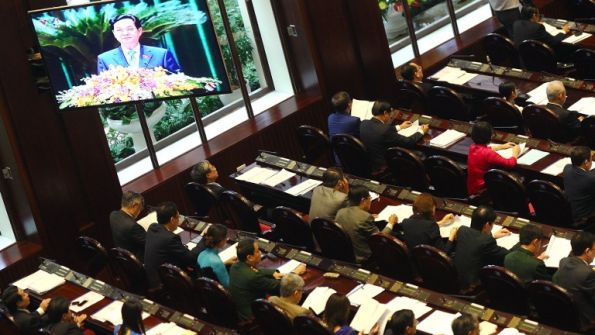'It is clear, however, that Vietnam’s 90m people won't be consulted on the Party’s next choice of prime minister, or for that matter, anything else; the government still does not allow free elections. Party congresses are effectively closed to the media, and following Hanoi politics is perhaps a bit like watching a football match through the wrong spectacles: The pitch and the general outlines of the action are clear enough, but not the footwork or the tackles.'
SOME Western advocacy groups imply, in their regular harangues of Vietnam's human-rights record, that the country is run by an all-powerful and well-oiled authoritarian regime. The truth, however, appears to be more complicated.
It is clear to analysts that the Ministry of Public Security
operates a vast surveillance apparatus designed to silence political
dissident—even on Facebook—and that Prime Minister Nguyen Tan Dung has major
influence over key policy decisions. To wit: his emergency directives earlier
this month helped to evacuate successfully nearly 800,000 people from coastal
areas ahead of Typhoon Haiyan. Relief agencies praised his efficiency and
foresight.


No comments:
Post a Comment